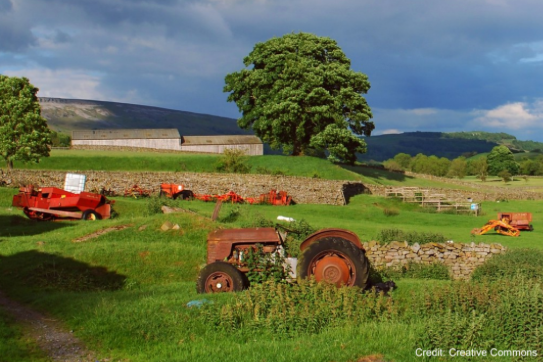Summary
The Swaledale CSFF group was one of the first to be set up in the UK and has benefited from other similar CSFFs being set up across the North of England region as part of the 2017 Northern Flood Round. This was viewed both as a necessity given the magnitude of the flooding issue, both on farms and further downstream, but also due to the need for farmers to diversify their income sources due to low farm incomes.
The 17 farmers involved at the outset wanted to engage with NFM measures and had expressed particular interests in soil management, flood water infiltration and planting of trees and hedges; all these are issues that are addressed in the monthly meetings to build up knowledge of different practices.
Objectives
- NFM such as woody debris dams to improve water quality by reducing phosphate and sediment within the catchment;
- Soil health;
- Tree Planting/woodland creation;
- Maintenance of field boundaries to reduce flooding;
- Understanding catchment flood risks;
- Funding streams through Countryside Stewardship.
Public Goods







Problem description
The Swaledale NFM CSFF was funded through the Northern Flood Round of the CSFF in response to impacts in the area from Storm Desmond in 2015. Damage to farmland, flash flooding and high flood waters were all strong driving forces for collective action and the group were keen to begin working together better; CSFF was a good way to support this.
Water often backs up and floods where the rivers meet, for instance at Arkle Beck, but the worst effects are felt further downstream as the water takes longer to drain away in the flatter areas. There was a desire to work collectively to slow the flow of water moving downstream and also reduce pollution washing downstream. Awareness has been raised about different types of NFM as well.
